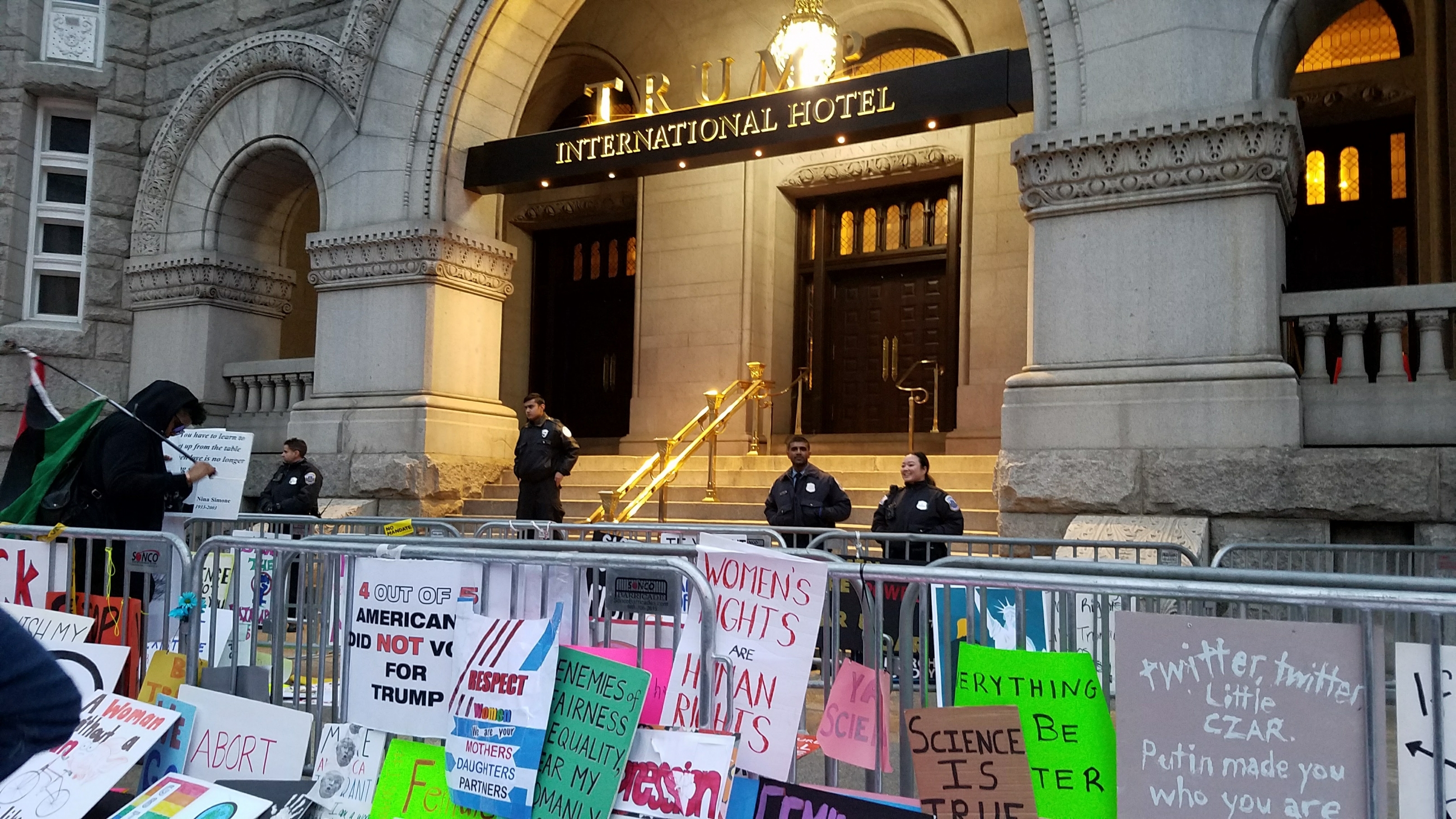The attorneys general in Maryland and Washington, D.C. have filed a lawsuit claiming that foreign and domestic government payments to Trump Hotels violate the U.S. Constitution.
According to Reuters, the attorneys general will seek an order in U.S. district court in Maryland that would prevent President Trump from accepting government payments beyond his salary. According to the claim, the payments not only draw business away from Maryland and D.C. venues, but they also pressure local governments into giving Trump's hotel chains special treatment. The local governments are faced with an "intolerable dilemma" when the President requests they grant his businesses land-use permissions or favors, the attorneys general allege.
Furthermore, the attorneys general have claimed that if the court does not grant the requests, they could be "susceptible to injury resulting from budgetary decisions that are subject to the corruption influence of emoluments."
The case brought by the two Democratic attorneys general may stand a better chance in court than the first government action over allegations that Trump violated the Constitution's emoluments clauses. These clauses bar the President from accepting gifts from foreign governments without congressional and domestic government approval under any circumstances.
Trump's businesses faced a similar lawsuit brought in January by several plaintiffs including an ethics nonprofit group. Democratic lawmakers have argued that these payments could be corrupting influences on Trump. In response, the Trump Organization has stated that it plans to donate profits from foreign government deals to the U.S. Treasury. However, the organization will not require the customers to identify themselves.

President Trump continues to own his businesses, including the Trump International Hotel in Washington, although he handed over management of Trump Organization in January to his elder sons. Therefore, the president can still profit from them at any time. The Justice Department argued that the plaintiffs cannot allege enough specific harm caused by Trump's businesses, and therefore lacked legal standing.
The government also stated that Trump hotel profits do not fit the definition of an improper payment under the Constitution. Payments to Trump Organization hotels do not violate the emoluments clause, they claimed, which is intended to cover personal services performed by the president.
Democratic attorneys general have successfully challenged Trump policies, especially in blocking the president's executive orders restricting travel from some Muslim-majority countries.
